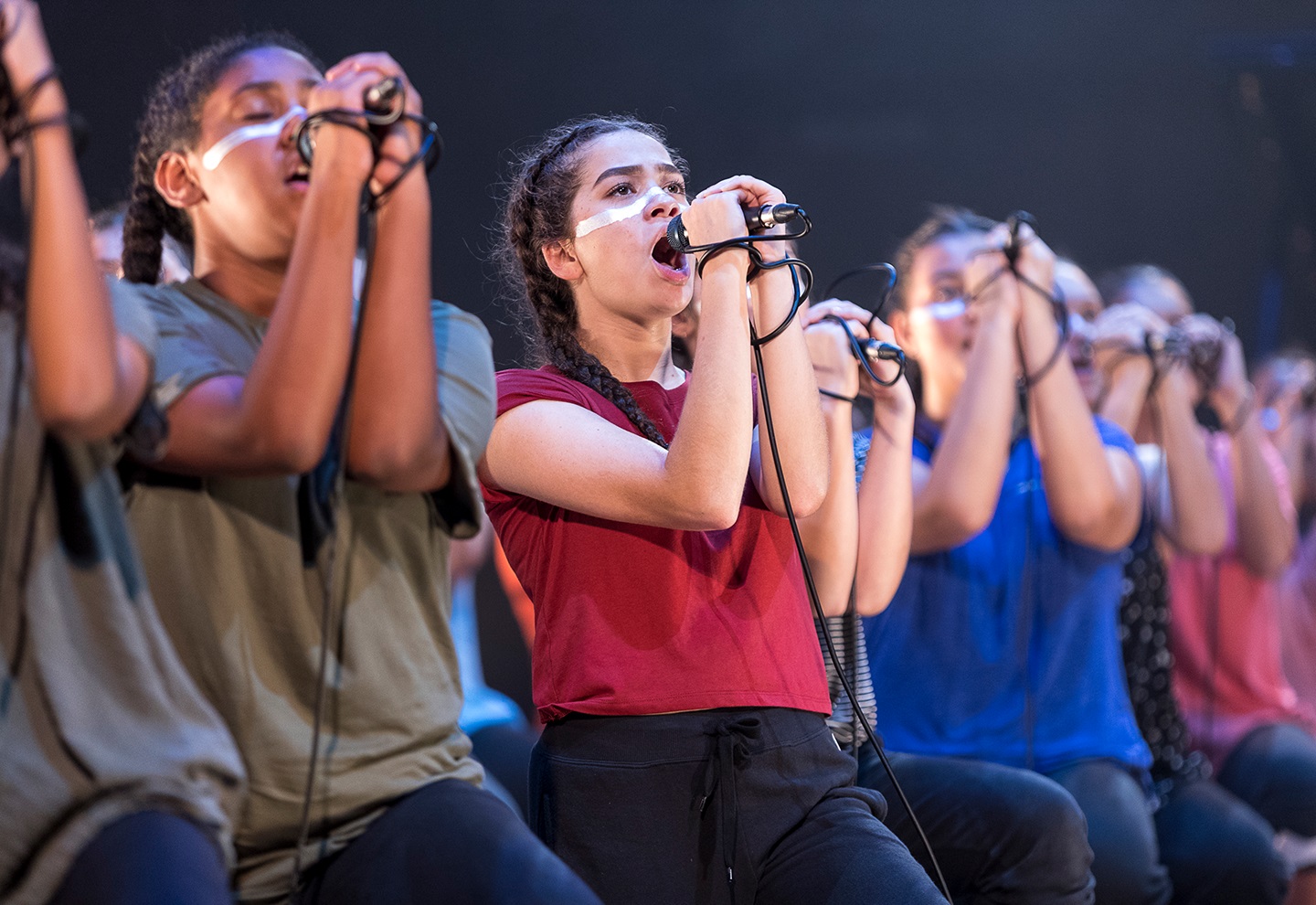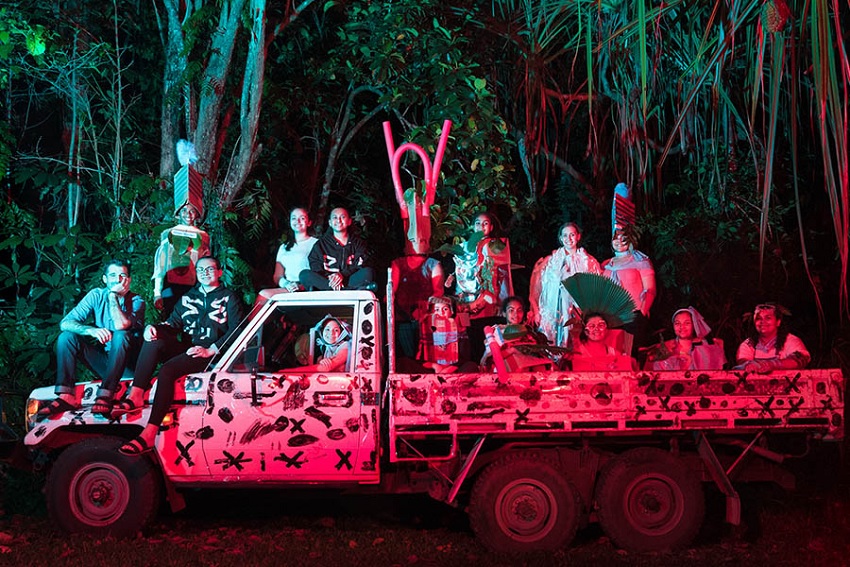
Walter Marsh
Walter is a writer and editor living on Kaurna Country.

In March 2018 Spinifex Gum and Marliya choir stunned Adelaide Festival audience members with a compelling, politically charged blend of harmony and protest. WOMADelaide 2020 will see this unique collaboration return to share the “warmer, lusher world” of Marliya’s musical sisterhood.
“I think the first album was more of a clenched fist,” Spinifex Gum songwriter Felix Riebl tells The Adelaide Review. “With this album, it’s very joyful; it’s more of an embrace.”
When Riebl set out to create a song cycle for Indigenous children’s choir Gondawna Choirs in 2015, he found himself on a very different creative path to the one trod in his two decades fronting globetrotting jazz-pop troupe The Cat Empire.
“It’s connected me to my country probably more than any other music project I’ve ever been involved in,” he says. “It brought me into layers of politics I wouldn’t have gotten into otherwise, and a way of writing songs I wouldn’t otherwise have written. I could write from a different perspective, which was interesting. And it’s just such a very unexpected sound; a choir with dark beats is something I haven’t heard before. It engaged me with Australia on a whole number of levels.”
Informed by current affairs and perspectives gained from time spent with Yindjibarndi communities in the Pilbara region, the first Spinifex Gum album was an often-scathing meditation on modern Australia, from the death in custody of Ms Dhu in 2014 to historic land rights battles, made all the more affecting by the talent and intensity of the young women performing it. In a country that often prefers to see its youth choirs sweetly singing Peter Allen in Qantas ad campaigns, the choir – now its own standalone group named Marliya – delivered a bracing and frequently challenging choral work full of frustration, grief and anger.
“It’s true, you know; the old cliché, Australian stereotype is the polite choir,” Riebl says. “With the first album, we really tried to invert that, giving each singer their own microphone and singing about often very cutting things – things you wouldn’t expect to hear in that context.”
Two years later, the themes of that pointed and political debut remain as timely as ever, from the ongoing Tanya Day inquest in Victoria to the recent shooting by Northern Territory police of 19-year-old Kumanjayi Walker, and ongoing resistance from traditional owners to fossil fuel exploration in the Flinders Ranges and Great Australian Bight.
But for Spinifex Gum’s second album, Sisters, Riebl worked to create a suite of songs that also embraced the personalities and bond of the young performers he has come to know. While the first album featured guests such as Briggs, Peter Garrett and Emma Donovan, Marliya shares equal billing for the entirety of Sisters.
“I spent so much time with the choir, and I felt like I really owed it to them as a songwriter in this project to not demand as much from this album as the first one,” he says. “It’s very joyful, it’s more of an embrace. It welcomes people in, so it’s more of a warmer sound, and invites people into the world of the choir themselves, into Marliya’s world of far north Queensland.

“It has moments of protest, but its optimism is a way of inverting stereotypes as well. And I love how this choir has many voices making one sound, and able to traverse so many emotional landscapes.”
The first Spinifex Gum was grounded in field recordings Riebl captured in the Pilbara, which he and fellow Cat Empire collaborator Ollie McGill then sampled, chopped up and pitch-shifted into hip hop and dancehall-inspired beats and textures. For Sisters, the pair travelled to Marliya’s home turf around Cairns to make sure the album’s musical fabric also reflected the girls’ homes and experience.
“There are these really woody, hollow sounds, then the sound of a cricket – it’s super high, but when you slow it down it becomes this amazing bass synth sound; a lot of the basslines are actually a cricket slowed down. There’s sounds of rocks and oceans from up there, but manipulated into drum machines and synthesisers.”
But front and centre is the magnetic presence of the choir itself, with songs like the upbeat Living In A Dream showcasing the group with buoyant harmonies over tropical beats that recall Musical Youth and Major Lazer. The album’s lead single, Together, is both an ode to the group’s sense of community and a rousing call for solidarity, while the album’s penultimate track, a cover of the Warumpi Band classic My Island Home, pays tribute to the Torres Strait Islander heritage of many of Marliya’s members.
“With the first album it meant a lot to us to sing other people’s stories – we wanted to do justice to them,” 18-year-old Marliya member Emily Iverach says of the project. “With this album it’s more about us; it’s fun. It’s like celebrating our sisterhood all together, how far we’ve come. I’m extremely proud of the girls.”
“We’ve known each other since we were, like, 12 years old,” Iverach says of the album’s buoyant title track. “Now most of us are 18, and singing that song just means so much to us.”
“There’s a lot of girls in the choir that are sisters,” fellow Marliya member Kimberley Jackson concurs. “But this choir’s grown a lot – I guess what that song’s really saying is that we’re all sisters now.”
Sisters is out now



Walter is a writer and editor living on Kaurna Country.